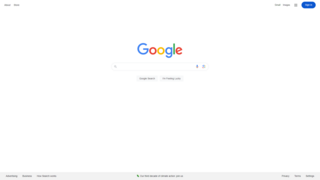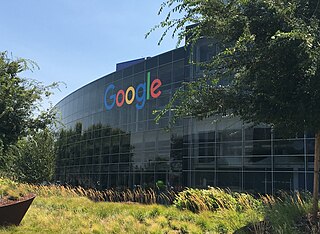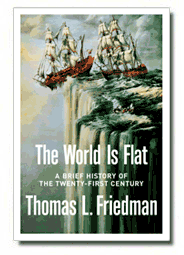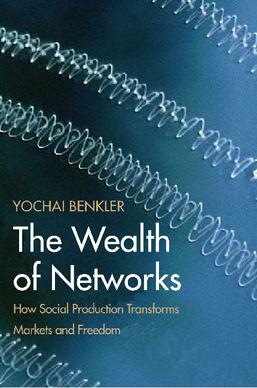
Google Search is a search engine operated by Google. It allows users to search for information on the Internet by entering keywords or phrases. Google Search uses algorithms to analyze and rank websites based on their relevance to the search query. It is the most popular search engine worldwide.

Excite is an American website operated by IAC that provides outsourced internet content such as a metasearch engine, with outsourced weather and news content on the main page. As of 2024, all of Excite's operations are controlled by services outside of the business.

Steven Levy is an American journalist and editor at large for Wired who has written extensively for publications on computers, technology, cryptography, the internet, cybersecurity, and privacy. He is the author of the 1984 book Hackers: Heroes of the Computer Revolution, which chronicles the early days of the computer underground. Levy published eight books covering computer hacker culture, artificial intelligence, cryptography, and multi-year exposés of Apple, Google, and Facebook. His most recent book, Facebook: The Inside Story, recounts the history and rise of Facebook from three years of interviews with employees, including Chamath Palihapitiya, Sheryl Sandberg, and Mark Zuckerberg.

Orkut Büyükkökten is a Turkish software engineer who developed the social networking services Club Nexus, inCircle and Orkut. He is a former product manager at Google.
Reputation management, originally a public relations term, refers to the influencing, controlling, enhancing, or concealing of an individual's or group's reputation. The growth of the internet and social media led to growth of reputation management companies, with search results as a core part of a client's reputation. Online reputation management, sometimes abbreviated as ORM, focuses on the management of product and service search engine results.

Google LLC is an American multinational corporation and technology company focusing on online advertising, search engine technology, cloud computing, computer software, quantum computing, e-commerce, consumer electronics, and artificial intelligence (AI). It has been referred to as "the most powerful company in the world" and is one of the world's most valuable brands due to its market dominance, data collection, and technological advantages in the field of AI. Google's parent company, Alphabet Inc., is one of the five Big Tech companies, alongside Amazon, Apple, Meta, and Microsoft.

Steven Berlin Johnson is an American popular science author and media theorist.

The World Is Flat: A Brief History of the Twenty-First Century is a 2005 book by American political commentator Thomas L. Friedman. It analyzes globalization in the early 21st century, suggesting that the world has a level playing field where countries, companies, and individuals need to remain competitive in a global market. It won the inaugural Financial Times and Goldman Sachs Business Book of the Year Award in 2005.

A search engine is a software system that provides hyperlinks to web pages and other relevant information on the Web in response to a user's query. The user inputs a query within a web browser or a mobile app, and the search results are often a list of hyperlinks, accompanied by textual summaries and images. Users also have the option of limiting the search to a specific type of results, such as images, videos, or news.
Google was officially launched in 1998 by Larry Page and Sergey Brin to market Google Search, which has become the most used web-based search engine. Larry Page and Sergey Brin, students at Stanford University in California, developed a search algorithm first (1996) known as "BackRub", with the help of Scott Hassan and Alan Steremberg. The search engine soon proved successful and the expanding company moved several times, finally settling at Mountain View in 2003. This marked a phase of rapid growth, with the company making its initial public offering in 2004 and quickly becoming one of the world's largest media companies. The company launched Google News in 2002, Gmail in 2004, Google Maps in 2005, Google Chrome in 2008, and the social network known as Google+ in 2011, in addition to many other products. In 2015, Google became the main subsidiary of the holding company Alphabet Inc.

Siva Vaidhyanathan is an American cultural historian and media scholar, and the Robertson professor of Media Studies at the University of Virginia. Vaidhyanathan is a permanent columnist at The Guardian and Slate; he is also a frequent contributor on media and cultural issues in various periodicals including The Chronicle of Higher Education, New York Times Magazine, The Nation, Slate, and The Baffler. He directs the Center for Media and Citizenship at the University of Virginia, which produces a television show, a radio program, several podcasts, and the Virginia Quarterly Review.

Robert Epstein is an American psychologist, professor, author, and journalist. He was awarded a Ph.D. in psychology by Harvard University in 1981, was editor-in-chief of Psychology Today, and has held positions at several universities including Boston University, University of California, San Diego, and Harvard University. He is also the founder and director emeritus of the Cambridge Center for Behavioral Studies in Concord, MA. In 2012, he founded the American Institute for Behavioral Research and Technology (AIBRT), a nonprofit organization that conducts research to promote the well-being and functioning of people worldwide.
Criticism of Google includes concern for tax avoidance, misuse and manipulation of search results, its use of others' intellectual property, concerns that its compilation of data may violate people's privacy and collaboration with the US military on Google Earth to spy on users, censorship of search results and content, its cooperation with the Israeli military on Project Nimbus targeting Palestinians and the energy consumption of its servers as well as concerns over traditional business issues such as monopoly, restraint of trade, antitrust, patent infringement, indexing and presenting false information and propaganda in search results, and being an "Ideological Echo Chamber".
The Michigan Digitization Project is a project in partnership with Google Books to digitize the entire print collection of the University of Michigan Library. The digitized collection is available through the University of Michigan Library catalog, Mirlyn, the HathiTrust Digital Library, and Google Books. Full-text of works that are out of copyright or in the public domain are available.

The Wealth of Networks: How Social Production Transforms Markets and Freedom is a book by Harvard Law School professor Yochai Benkler published by Yale University Press on April 3, 2006. The book has been recognized as one of the most influential works of its time concerning the rise and impact of the Internet on the society, particularly in the sphere of economics. It also helped popularize the term Benkler coined few years earlier, the commons-based peer production (CBPP).

Authors Guild v. Google 804 F.3d 202 was a copyright case heard in federal court for the Southern District of New York, and then the Second Circuit Court of Appeals between 2005 and 2015. It concerned fair use in copyright law and the transformation of printed copyrighted books into an online searchable database through scanning and digitization. It centered on the legality of the Google Book Search Library Partner project that had been launched in 2003.

DuckDuckGo is an American software company with a focus on online privacy. The flagship product is a search engine that has been praised by privacy advocates. Subsequent products include browser extensions and a custom DuckDuckGo web browser.

Googlization is a neologism that describes the expansion of Google's search technologies and aesthetics into more markets, web applications, and contexts, including traditional institutions such as the library. The rapid rise of search media, particularly Google, is part of new media history and draws attention to issues of access and to relationships between commercial interests and media.
Annalyn Swan is an American writer and biographer who has written extensively about the arts. With her husband, art critic Mark Stevens, she is the author of de Kooning: An American Master (2004), a biography of Dutch-American artist Willem de Kooning, which was awarded the 2005 Pulitzer Prize for Biography or Autobiography. De Kooning also won the National Book Critics Circle prize for biography and the Los Angeles Times biography award, and was named one of the 10 best books of 2005 by The New York Times. In her review in The New York Times, Janet Maslin wrote: "The elusiveness of its subject makes the achievements of de Kooning: An American Master that much more dazzling."

Locomotive is a 2013 children's book written and illustrated by Brian Floca. A non-fiction book written primarily in free verse, the book follows a family as they ride a transcontinental steam engine train in summer of 1869. The book details the workers, passengers, landscape, and effects of building and operating the first transcontinental railroad. The book also contains prose about the earlier and later history of locomotives. The book took Floca four years to create, which included a change in perspective from following the crew of the train to following a family. Floca conducted extensive research including his own train ride and consultation with experts to ensure he had the details all correct.















